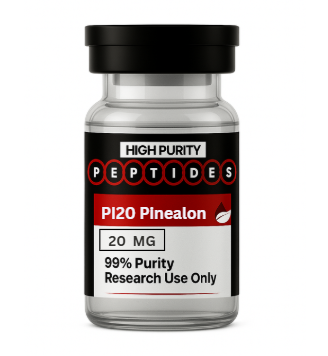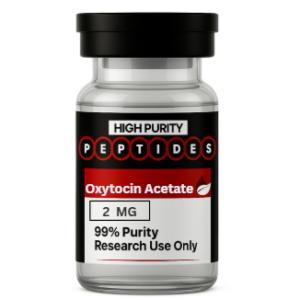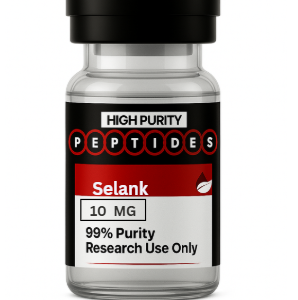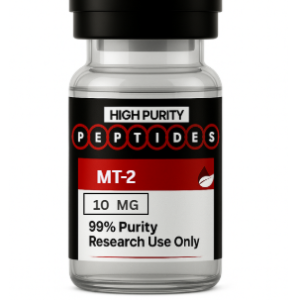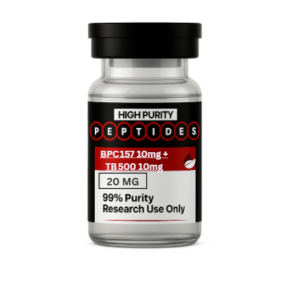PI20 Pinealon 20mg × 10 vials
$90.00
Pinealon 20mg peptide in 10 vials for intensive neuroscience studies.
PI20 Pinealon 20mg × 10 Vials – Premium Neuroprotective Research Peptide
PI20 Pinealon 20mg × 10 vials is a high-purity peptide formulation designed for advanced neuroprotective and cognitive research. As a tripeptide compound composed of natural amino acids, Pinealon is widely studied for its potential role in supporting brain function, promoting longevity, and protecting neurons from oxidative damage.
This 20mg variant provides researchers with a higher concentration of Pinealon for large-scale or long-term experimental protocols, ensuring consistent results and superior stability.
What is Pinealon?
Pinealon is a synthetic tripeptide (Glu–Asp–Arg) that acts as a cellular bioregulator in the central nervous system. It is derived from natural protein structures that help regulate gene expression, support DNA synthesis, and enhance the repair of damaged neural cells.
Scientific studies have explored Pinealon’s ability to improve cognitive performance, protect brain cells, and delay age-related cellular decline. Its neuroprotective and antioxidant effects make it a valuable compound in neuroscience, gerontology, and metabolic research.
Product Details
-
Product Name: PI20 Pinealon
-
Concentration: 20mg per vial
-
Quantity: 10 vials per package
-
Form: Lyophilized peptide powder
-
Purity: ≥98% (HPLC tested)
-
Storage Conditions: Store refrigerated between 2°C and 8°C
-
Intended Use: For laboratory and research use only (not for human or veterinary use)
Scientific Background
Pinealon is known to influence gene regulation in the brain and support DNA and RNA synthesis, which are critical for healthy neuronal function. It has demonstrated potential to reduce oxidative stress, promote mitochondrial efficiency, and assist in maintaining normal cognitive activity.
In preclinical studies, Pinealon has shown promise in enhancing mental performance, improving stress resilience, and slowing neurodegenerative changes—making it an important molecule for research on aging and neuroprotection.
Key Research Benefits
-
🧠 Neuroprotective Effects – Supports neuronal survival and function under oxidative stress.
-
⚡ Cognitive Enhancement – May improve focus, learning capacity, and memory retention.
-
⏳ Anti-Aging Research – Investigated for its role in slowing down age-related cognitive decline.
-
🔬 Cellular Regeneration – Promotes DNA repair and supports protein synthesis in brain cells.
-
💪 Oxidative Stress Resistance – Balances free radical activity and supports brain metabolism.
Applications in Research
PI20 Pinealon 20mg × 10 vials is widely used in scientific investigations such as:
-
Neurodegenerative disease studies (Alzheimer’s, Parkinson’s models)
-
Brain health and memory enhancement research
-
Anti-aging and longevity experiments
-
Cognitive and stress response studies
-
Cellular metabolism and mitochondrial function
This high-concentration Pinealon formula allows researchers to conduct extended testing and comparative dosing studies across multiple models.
Storage and Handling Guidelines
-
Store at 2°C – 8°C in a cool, dry environment.
-
Protect from heat, moisture, and direct sunlight.
-
Reconstituted peptide should be refrigerated and used promptly.
-
Avoid repeated freeze-thaw cycles.
-
Handle with sterile laboratory procedures.
Packaging Information
Each pack of PI20 Pinealon 20mg × 10 vials contains:
-
10 sterile vials of lyophilized Pinealon peptide
-
Sealed for maximum stability and purity
-
Clearly labeled with lot number and purity certification
This professional-grade packaging ensures product integrity for reliable laboratory performance.
Safety Information
-
For research purposes only.
-
Not for human, medical, or veterinary administration.
-
Handle under standard laboratory safety protocols.
-
Dispose of all materials according to institutional guidelines.
Why Choose PI20 Pinealon 10 Vials?
-
Exceptional purity (≥98%) and verified quality
-
Higher dosage for extended or intensive research
-
Proven reliability for neurobiological and aging studies
-
Stable lyophilized form for long shelf life
-
Consistent results in advanced experimental setups
Conclusion
PI20 Pinealon 20mg × 10 vials is a superior-grade research peptide trusted by scientists studying neuroprotection, brain metabolism, and aging. With its high purity and extended dosage format, this peptide provides researchers with the flexibility and consistency needed for long-term or high-dose investigations into cognitive health and neural regeneration.
As a potent neuropeptide bioregulator, Pinealon continues to advance understanding in the fields of neuroscience, gerontology, and molecular biology—offering valuable insights into how peptides can enhance cellular resilience and mental performance.

